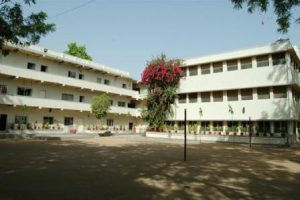Online Education is Not Real Education: Says Gujarat Government
The Gujarat High Court has given a direction for a balance between the schools’ requirement and the parents’ distress during the pandemic.
In the COVID-19 scenario, where online education is the only way forward, many schools have been facing the challenge of completely revamping their technology and ensuring a smooth transition to the same.  School owners and teachers have put in efforts and resources to carry forward education despite the lockdown. The students are trying to be made to feel comfortable with this new situation. However, the situation became messy when the schools asked for the fees from the parents. Several schools decided to cut their fees in half to cover at-least some of the expenses they incurred and to make it affordable for the parents. While some parents agreed to this, some moved to the courts to file a Public Interest Litigation (PIL).
School owners and teachers have put in efforts and resources to carry forward education despite the lockdown. The students are trying to be made to feel comfortable with this new situation. However, the situation became messy when the schools asked for the fees from the parents. Several schools decided to cut their fees in half to cover at-least some of the expenses they incurred and to make it affordable for the parents. While some parents agreed to this, some moved to the courts to file a Public Interest Litigation (PIL).
In an order dated 19 June 2020, the Gujarat High Court paved the way for creation of some modalities between the government and the private schools pertaining to the fees of the students. It also levied upon the state the duty to ensure that the private schools do not cancel the admissions of the students who were unable to pay the fees by 30 June 2020.
The next major development in the witch hunting of private schools occurred on 16 July 2020 via an education department resolution. As per the government resolution (GR), the private schools were denied permission to collect any sort of fees as long as the schools are closed and prevented them from hiking fees for the 2020–2021 session. The government even considered online education not to be real education.
As a consequence of this regressing resolution, there arose a disagreement between the state and the private schools. In response, the private schools put a halt to the online education following the decision of Akhil Gujarat Rajya Shala Sanchalak Mahamandal, which is an association of management and trustees of schools. The GR was seen as being “unreasonable and unacceptable”. This is another indicator of the disputes between the state, parents and private schools of Gujarat worsening.
The spokesperson of Self-financed School Management Association, Dipak Rajyaguru, stated that nearly all the self-financed schools of the state collectively refrained from conducting online classes. In a statement he said, “If the government believes online education is not real education, then there is no meaning of imparting such unreal education to our students. Online education will remain suspended until the government withdraws that notification.”
Several parents reacted to the suspension of online classes and recognised that this ‘no fee’ decision is unfair as the schools have spent resources and put in efforts to switch to a completely online medium for education in order to ensure that the studies aren’t affected.
“A solution will need to be worked out. Without online education, students will not be remotely willing to touch books and will be glued to gadgets all day.”
Also Read : Online Education during COVID-19: Dividing the Divided
Many recognise the practical difficulties in running a school without any collection of fees. Another parent said that, “We understand the difficulties in running a household with financial constraints, so it is unimaginable the difficulties the school would face with no fees. The best solution is to let the schools collect discounted fees in order to ensure smooth education of the students.”
The schools state that they need the tuition fees in order to pay salaries of the teachers conducting online sessions and non-teaching staff, despite the school being closed. A trustee of a leading school in Ahmedabad quoted, “We have to pay salaries of teachers and other administrative staff even during the pandemic so the government’s directive restraining the schools from charging fees is not justified.”Speaking on this, Amit Shah, Trustee of AnandNiketan Maninagar Ahmedabad said that “Decisions like this are highly detrimental to the people who follow good work ethics and practices to ensure smooth transition to online education.”
 On the other side, Bhupendrasinh Chudasama, State Education Minister, has said that it is the government who has to protect the interests of students and parents that have suffered financial losses during the pandemic. Further, the education department has stepped in and filled the gap caused by suspension of online classes through online education via BISAG and DD Girnar channel.
On the other side, Bhupendrasinh Chudasama, State Education Minister, has said that it is the government who has to protect the interests of students and parents that have suffered financial losses during the pandemic. Further, the education department has stepped in and filled the gap caused by suspension of online classes through online education via BISAG and DD Girnar channel.
Another response to the GR came in the form of an online campaign #SaveOurSchools launched by the Association of Progressive Schools. This campaign aims at pressuring the government to revise the order and take a mutually benefiting decision. The campaign reached the trending section of Twitter with more than 1 lakh tweets.
In a u-turn decision, the suspension of online classes was reversed and schools associated under the Association of Progressive Schools decided to resume online classes from 27 July in order to not link the education of students with the protest.
In addition, spokesperson of Self-financed Schools Federation Deepak Rajguru said that many schools received requests from parents to resume online education and thus they decided to resume online classes.
Also Read : Prisoners’ Education in India: An Institutionalised Insufficiency
The Gujarat High Court in response to three PILs stated that the GR prohibiting private schools from collection of fees until schools reopen to be “totally absurd” on 25 July. In a subsequent hearing on 31 July, the court has decided to strike down the clause of no fees collection in the GR. Chief Justice Vikram Nath and Justice JB Pardiwala questioned the logic behind issuing such a directive. The Court observed a provision of the notification based on which the salaries or any other expenditures incurred by the schools can be produced before the Fee Regulatory Committee for the upcoming academic year, which in turn would only increase the burden of parents for the next year. It directed the government and private school federation to come together and find a symbiotic and amicable solution on the same. The direction aimed for a balance between the schools’ requirement and the parents’ distress during the pandemic.
Speaking on this, Archit Bhatt, the president of Association of Progressive Schools spoke to us and said, “The High Court has made a just and fair decision to strike down the no fees clause. However, the ultimate solution remains absent and a detailed order regarding the same is expected within a day or two. We hope the final decision is amicable and beneficial to everyone.”
It is yet to be seen what amicable decision does the court come up with. In concurrence, other provisions of the GR, which talk about the reimbursement of fee to parents and shifting of the burden of expenditure incurred during the pandemic onto the fee of the subsequent academic year, remain to be heard further.
